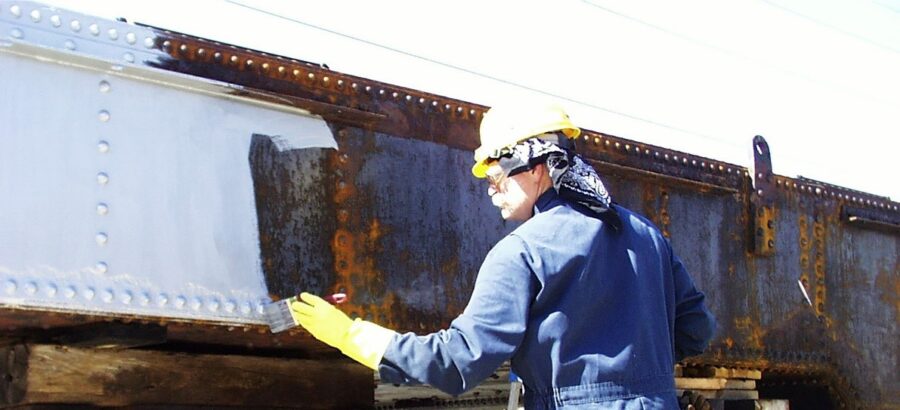
The World Corrosion Organization has estimated that corrosion costs the world about $2.2 trillion each year. That’s a whopping 3% of the global GDP. Sadly, corrosion and pollution often go hand-in-hand. Pollutants can speed up corrosion, while rust from corrosion can pollute our waters.
In this blog, let’s break down what corrosion is and why choosing the right rust-prevention products is more important than ever.
What is rust?
Corrosion is essentially the reaction of a material with its surroundings. There are three prerequisites for corrosion to occur: a protected metal, a corroded metal, and a medium that facilitates electrical current between these metals.
It’s crucial, especially for manufacturers and other industrial users, to recognize factors that intensify the probability of corrosion in order to come up with rust prevention strategies.
Water, particularly saltwater, can swiftly corrode steel. Hence, manufacturers in proximity to saltwater or those utilizing saltwater in their production process must closely monitor their metal systems, as corrosion can manifest almost instantly. Likewise, manufacturers located in industrial zones should be aware of the potentially corrosive effects of acids, alkalis, and other chemicals present in smoke and fumes in the area. Corrosion may surprisingly occur swiftly when environmental conditions include excessive smoke emissions from neighboring manufacturing units.
Consideration must also be given to systems buried underground, as the soil can rapidly corrode metal elements like pipes and other steel systems. Soil’s ability to conduct electricity can lead to severe metal corrosion. Acknowledging, identifying, and mitigating corrosion with rust prevention solutions is vital for industrial facilities that make extensive use of metals.
What is the best rust prevention strategy?
Using world-class rust inhibitors from Rust Bullet is the best way to stop corrosion in its tracks. Our products are free from harmful elements like lead, zinc, and heavy metals and exceed EPA standards for potable water. They also excel as a fire-retardant coating and can seal off the mold.
Moreover, our rust inhibitors are resistant to UV light, chemicals, scratches, and chipping and are very easy to apply. They offer reliable and long-term protection while boasting low VOC content.
Consult the experts on rust prevention.
While rust prevention incurs a cost, it is far less than the expenses associated with repairing or replacing damaged systems when it’s already too late. Lack of preventive actions could result in structural damage or total loss, increased maintenance costs, and potential revenue loss due to long-term issues caused by corrosion (such as leaks or fires).
If you are looking for proactive rust prevention products and strategies for your specific requirements, don’t hesitate to contact us here at Rust Bullet. Tell us about your concerns, and we will recommend the most suitable rust-prevention products for your application.
